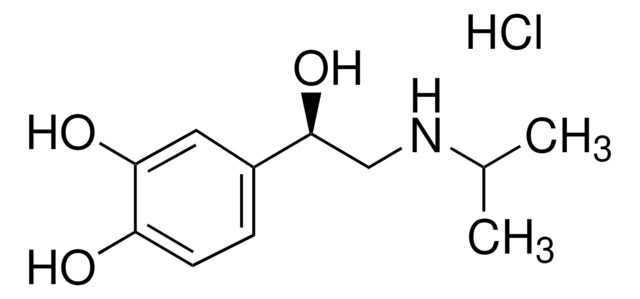H6649
Herbimycin A from Streptomyces hygroscopicus
≥95% (HPLC), powder
About This Item
Recommended Products
biological source
Streptomyces hygroscopicus
Quality Level
Assay
≥95% (HPLC)
form
powder
color
yellow
solubility
DMSO: 7.5 mg/mL
antibiotic activity spectrum
viruses
Mode of action
enzyme | inhibits
storage temp.
−20°C
SMILES string
CO[C@H]1C[C@H](C)[C@@H](OC)C2=CC(=O)C=C(NC(=O)\C(C)=C\C=C[C@H](OC)[C@@H](OC(N)=O)\C(C)=C\[C@H](C)[C@H]1OC)C2=O
InChI
1S/C30H42N2O9/c1-16-10-9-11-23(37-5)28(41-30(31)36)18(3)12-17(2)27(40-8)24(38-6)13-19(4)26(39-7)21-14-20(33)15-22(25(21)34)32-29(16)35/h9-12,14-15,17,19,23-24,26-28H,13H2,1-8H3,(H2,31,36)(H,32,35)/b11-9-,16-10+,18-12+/t17-,19-,23-,24-,26+,27+,28-/m0/s1
InChI key
MCAHMSDENAOJFZ-BVXDHVRPSA-N
Looking for similar products? Visit Product Comparison Guide
General description
Application
Biochem/physiol Actions
Caution
Storage Class Code
11 - Combustible Solids
WGK
WGK 3
Personal Protective Equipment
Choose from one of the most recent versions:
Already Own This Product?
Find documentation for the products that you have recently purchased in the Document Library.
Our team of scientists has experience in all areas of research including Life Science, Material Science, Chemical Synthesis, Chromatography, Analytical and many others.
Contact Technical Service







